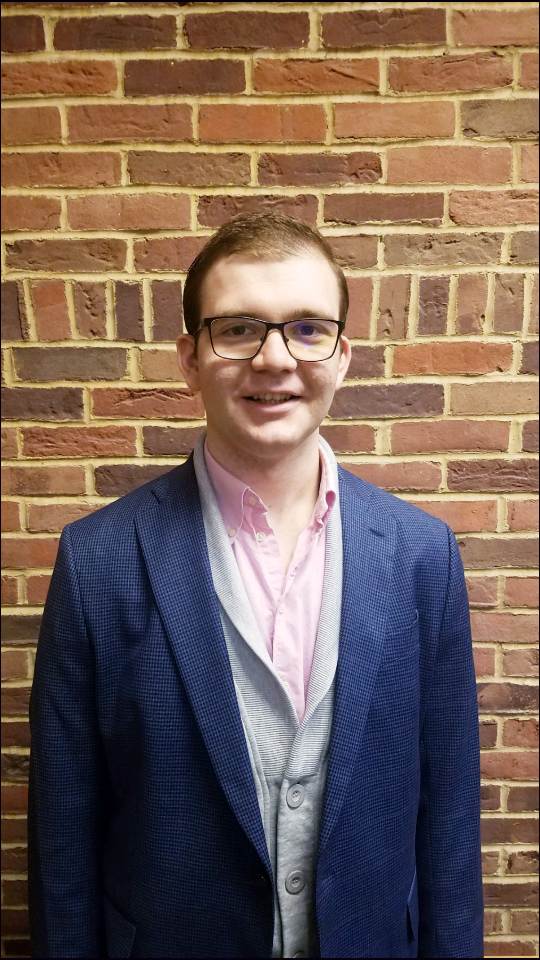I do not have many regrets from my college years.
I have written terrible research papers, disregarded the views of some great scholars as jejune, enunciated thoughts I deeply detest, let my beliefs shape facts, been awful to people — the waltz goes on.Yet, je ne regrette rien!
Though a normal person would have. However, I have been accused of many things, but never of being normal.
But throughout this spring break, I finally realized that I regret never signing up for the C. Henry Smith Oratorical Contest.
What would I talk about, though?
I could talk about how a hopeless, working-class no-one with broken English roared where others soared, got educated in the United States and now has family and friends all over the world. Or I could talk about my superb academic achievements and how I have come to understand that one must try and try and try and let no failure get in the way.
I could go on forever telling tales of glory about myself. But I am Albanian, and we don’t do uplifting—that’s a very American virtue and vocation.
Not to mention that those stories would be neither true nor nearly as heroic and amazing as I would make them sound.
I don’t have any great life skills. How I manage to survive is a matter of mystery. I’m just a lazy but lucky rascal. And that’s that.
What, then, would I talk about? Religion? Well, it’s a religious campus, and everyone has their own epiphanies. Talking about it would be boring and unoriginal, much like watching “Downton Abbey” for the fifth time—but come to think of it, not a terrible idea, for I have watched it more than that.
Then should I have talked about personal growth? Unfortunately, there is nothing new nor old about it. Everybody goes through personal growth and everybody believes that theirs matters more than that of others (I know from experience).
What, then, on God’s green earth would I talk about?
History, dear friend, history.
I can picture some of you saying “lame” while rolling your eyes. I don’t blame you. In fact, I empathize with you (not really, but I can pretend to be nice).
In all frankness, for the C. Henry Smith Contest I would deliver my thoughts on history, not so much for the audience, but to reassure myself, as the abyss (i.e. graduation) grows darker and deeper, that history is my ticket to the “Promised Land.”
Maybe it’s time to believe a professor of mine who said, “Rudi, you will have a bright future.” But little did I know that my professor was so literal. With a history degree, I will, indeed, have a bright future, because I will end up working as an electrician.
When my father heard that I was studying history, he growled, saying, “Inspiring to have a good life with that major is as naive as a glass hammer hoping to help Noah build the Ark.”
Never had I agreed with my father more than on that occasion. Why, then, did I become a history major? Apart from my naiveté, another reason exists: a love for lost causes (judge me for being a hopeless romantic).
Why study history?
I could throw here the usual quote of Santayana that those who don’t know the past are doomed to repeat it. But it is such a cliché even though it is quite true. Or I could say that history will help me change the world. But I’d lie. I don’t have that noble goal.
I studied history for two selfish reasons.
First, because it allows me to escape from myself (standing Rudi is a torture, believe me) and live many lives. You see, I was there when Napoleon lost in Waterloo, when Robespierre gleefully beheaded Marie Antoinette, when Mandela triumphed, when Kant came to this world and when Camus left it.
History makes me feel as if I don’t matter at all and at the same time as if I belong to something much bigger than myself.
The second reason I only understood one year ago while Skyping with a family member who survived the Holocaust. He was worried and uneasy because he was observing familiar patterns in today’s West as he had witnessed in the early 1940s.
“I am afraid,” he said, “I have seen this before. I just don’t want humans to witness more Mauthausens.”
At that moment, I knew why I decided to study history. I want to understand the world. Understanding means perceiving patterns and that means seeing issues from perspectives that you like and dislike.
I chose history so that I can help myself and others interpret the world in order to find some clarity and stability in an era which offers neither and perhaps change it after understanding it.
Perhaps it is a lost cause because atrocities will keep happening and history will never be as sexy as computer science or chemistry. Nonetheless, as Clarence Darrow said, “Lost causes are the only ones worth fighting for.” History is my lost cause which I will fight for.
Tell me, dear friend, which is your lost cause?


